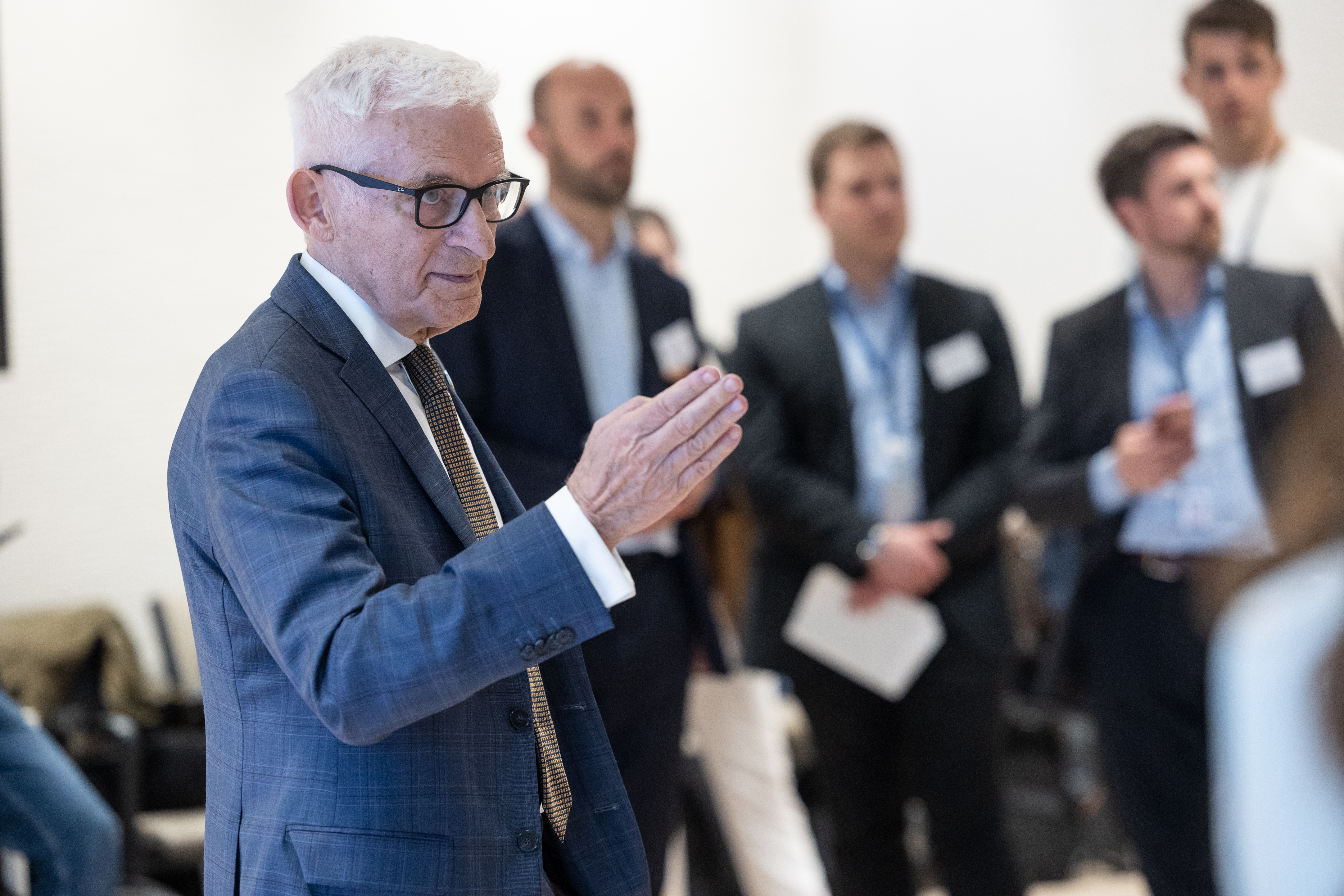Flexibility solutions in the Electricity Market Design reform
Chaired by Jerzy Buzek MEP, President of the EEF
Speakers:
Damian Cortinas, Member of the Board, ENTSO-E
Carl Richers, Vice-President, EUGINE
Marta Navarrete Moreno, Iberdrola Liaison to EASE
Christof Lessenich, Head of Unit for Internal Energy Market, DG ENER, European Commission
This third EEF discussion on the Electricity Market Design reform was opened by Jerzy Buzek MEP (EPP, Poland), President of the EEF who emphasized the importance of flexibility options in the proposal. In his view, they will enhance the EU’s stability and security of supply when electricity production is increasingly reliant on intermittent renewable energy sources.
Damian Cortinas, Member of the Board, ENTSO-E explained the meaning of flexibility from a system perspective. Flexibility serves as a means to address the challenges posed by the variability and complexity of the future power system, primarily due to weather-dependent renewable energy sources. However, he underlined that not all resources are suitable for fulfilling all flexibility needs. First and foremost, it is crucial to evaluate and classify them either in short-duration or long-duration flexibility. Additionally, Mr Cortinas highlighted the significance of adequately quantifying the needs and establishing an appropriate governance. In this respect, he suggested attributing the competences to the Member States and, at the European level, to ENTSO-E in cooperation with DSOs.
During his speech, Carl Richers, Vice-President, EUGINE discussed three key points. Firstly, he addressed the challenges for achieving a resilient and renewable power system in the future, emphasizing the need for flexibility and, in particular, for chemically stored energy. Secondly, he explained some of the main characteristics of engine power plants such as their swift ramp-up time, their capacity to fulfil both short-term and longer-term needs, their adaptability to operate in CHP mode and the possibility to combine them with heat pumps. Finally, he clarified misperceptions on engine power plants stressing their ability to run on various of fuels – ranging from diesel and natural gas to biogas, landfill gas, sewage gas, wood gas, biomethane and hydrogen. In conclusion, he suggested a technology-neutral approach in the reform, because all flexibility solutions should be considered.
Marta Navarrete Moreno, Iberdrola Liaison to EASE highlighted the importance of flexibility and storage in Europe’s decarbonization process to ensure a resilient and dependable energy system. Recognizing the challenge of curtailment in Europe, Ms Navarrete underlined the need to prioritize the development of flexibility solutions, particularly energy storage. To achieve this, she emphasized the importance of regulatory certainty, both through the effective implementation of existing legislation and through a market reform that can restore confidence. In this respect, she praised the Commission’s proposal for building upon the current framework rather than introducing drastic changes. In her concluding remarks, Ms Navarrete suggested the remuneration of the value of storage to the system, through capacity remuneration mechanisms and flexibility support schemes.
Christof Lessenich, Head of Unit for Internal Energy Market, DG ENER, European Commission acknowledged the ongoing need for implementing some of the provisions from the Clean Energy Package. However, he underlined that these provisions alone may not be sufficient to face the current energy landscape. This is why the European Commission decided to come up with the proposal. Mr Lessenich then focused on capacity mechanisms, underlining that they have to be designed in such a way that avoids only procuring fossil-based flexibility. He also highlighted the importance of flexibility needs assessments, which necessarily have to be based on Member State’s specificities and their national capacities. In conclusion, Mr Lessenich urged caution in amending the proposal, to avoid excessive market interventions that may negatively impact investor certainty.
During this energy debate, the EEF also had the pleasure to have Maria da Graça Carvalho MEP (EPP, Portugal), Shadow Rapporteur on the Electricity Market Design reform joining the discussion. MEP Carvalho took the opportunity to explain the amendments that she presented right before this debate. Her initiatives are aimed at strengthening grid interconnections and investments, promoting the enlargement of energy sharing, removing barriers to PPAs, introducing guiding principles for CfDs and adopting a cautious approach to virtual hubs.
The discussion continued with a Q&A session, providing an opportunity for participants to ask questions and exchange with the speakers on various aspects of the reform. These included the potential introduction of a revenue cap, the role of ACER, peak shaving products, flexible generation and capacity mechanisms.



